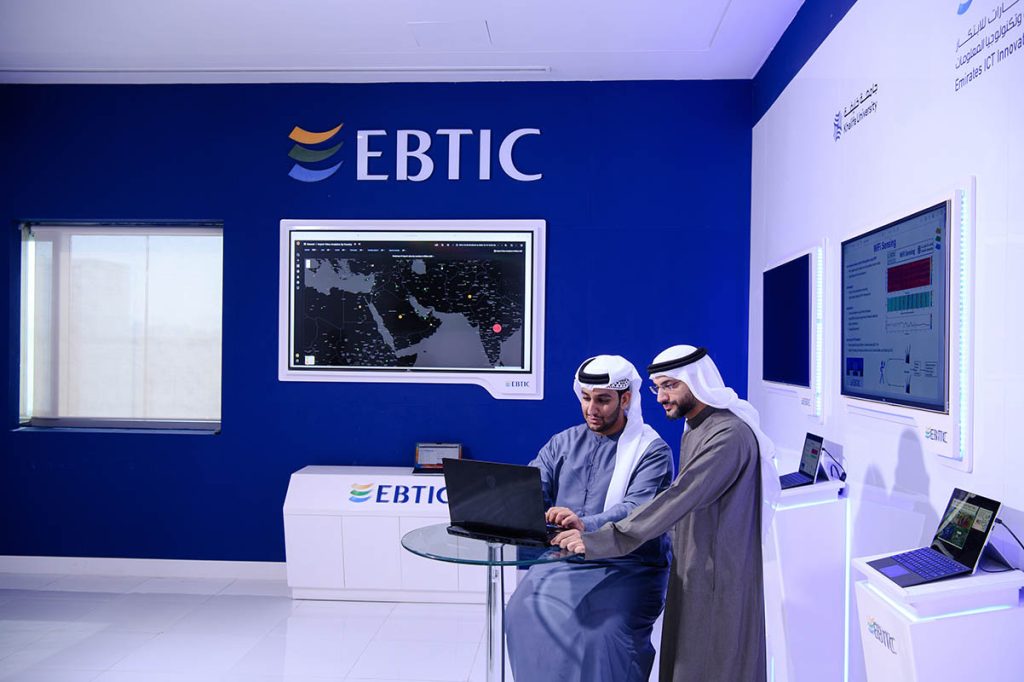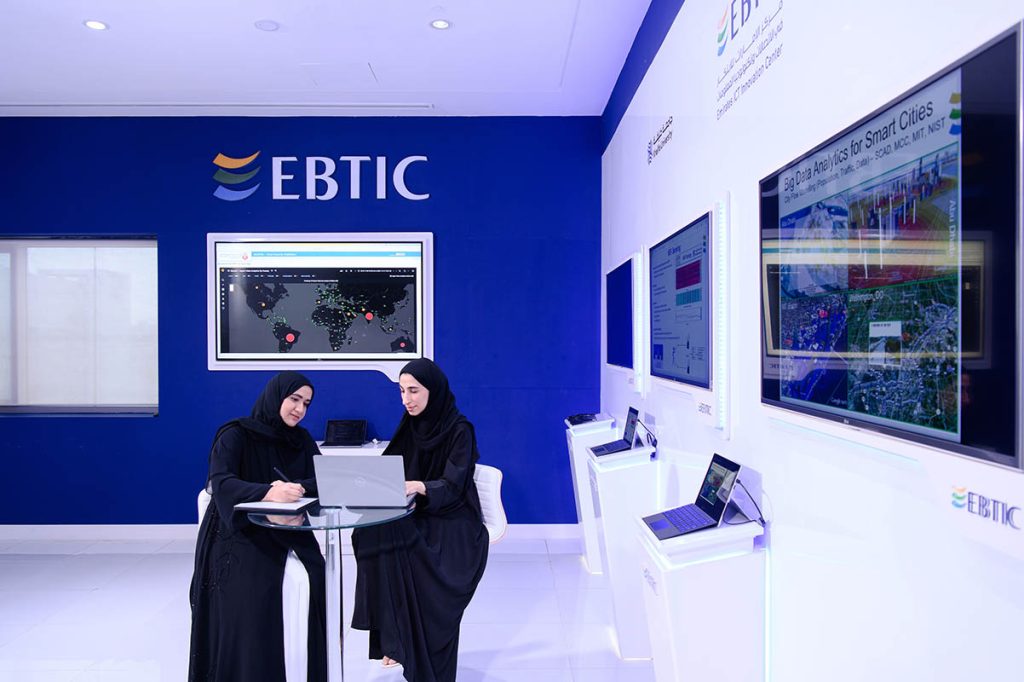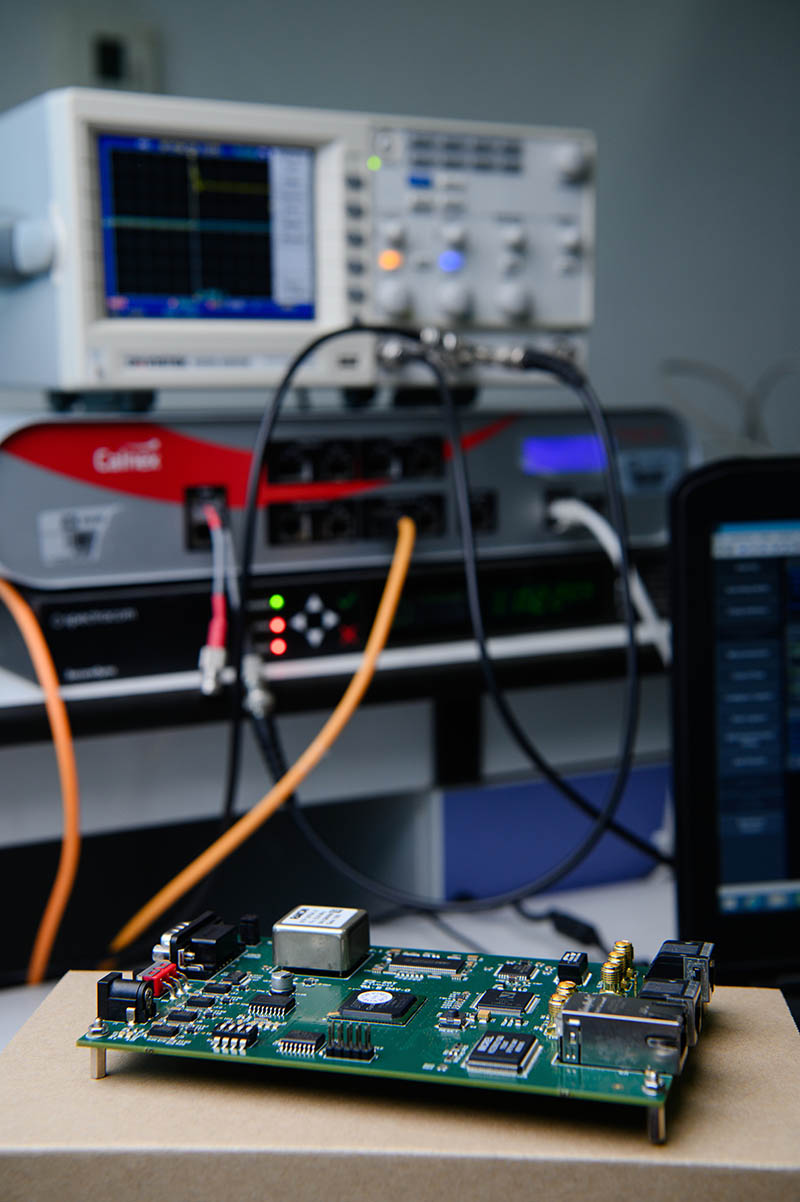A smart future for the UAE
Nurturing talent, creativity and curiosity, the Emirates ICT Innovation Center develops machine learning and telecommunications tools to tackle diverse national and societal challenges.
“What drives me to work in machine learning research is what once drove explorers to discover new lands: curiosity,” says Dymitr Ruta, chief researcher in machine learning at the Emirates ICT Innovation Center (EBTIC). “Couple this with the thrill of revisiting old problems with insights gained from new techniques and technologies and it is a brilliant time to be working in ICT.”
EBTIC is at the forefront of nurturing talent and ingenuity, focusing on machine learning and telecommunication to address diverse national and societal challenges.
“At EBTIC, we seek to support and prepare new leaders in the fields of digital technology and telecommunications. We aim high, but we are also empathetic and compassionate employers,” says Nawaf Almoosa, Director of EBTIC. “Our mission is to nurture and sustain this emerging research field, which is still relatively new here in the UAE.”
Innovation through collaboration
EBTIC was founded in 2009 by three key partners: telecommunication groups e&, British Telecom (BT), and Khalifa University. The Center has also received funding from the Telecommunication and Digital Government Authority’s ICT Fund. EBTIC is based at KU campus, giving the Center direct access to the university’s expertise and pool of talented students. It also has the benefit of decades-worth of research and technology development by two leading telecommunication industry giants—e& and BT—providing real-world solutions and high-quality, robust research insights that inform future business strategies.
“One of our guiding principles is not just to develop and produce material goods and novel technologies, but to focus on capacity building here in the UAE.”
Nawaf Almoosa
With its wide-reaching research goals and commitment to blue skies thinking, EBTIC is on track to become an international centre of excellence for ICT research and innovation. Their success is driven by the strong partnerships between industry, academia and government.
“One of our guiding principles is not just to develop and produce material goods and novel technologies, but to focus on capacity building here in the UAE,” emphasizes Almoosa. The UAE government has consistently demonstrated forward-thinking in its approach to ICT, appointing its first Minister for artificial intelligence (AI) in 2017, with a vision to to integrate AI across all government departments. “This reinforces our mandate as a unique Center for intelligent systems research in the UAE,” Almoosa highlights.

A machine learning tool for the UAE’s full fiber revolution
“We aim to provide the country with the best quality telecommunications infrastructure possible,” says Almoosa. “This means our work is visible and meaningful to the general public, and everyone benefits from the high-quality networks that we are creating.”
One flagship technology that EBTIC has created is an AI-based tool for optimized planning and implementing Fiber to the Home networks. The UAE was one of the first countries to commit to installing full fibre internet through their pioneering Fibre-to-Home program. However, planning optimal infrastructure for each neighborhood posed significant challenges. Formerly, planners spent hours to complete, sometimes up to 10 to 12 days, identifying the most efficient, cost-effective layout for the network for a single area.
“Our AI tool computes the optimal network orientation automatically in a matter of minutes,” says Almoosa. “This dramatically cuts the time it takes to plan each segment of the network and enables faster installation. We are proud of this tool; effective, fast internet connectivity undoubtedly enhances quality of life for the public. This was particularly true during the COVID-19 pandemic, where remote learning and working became a necessity.”
Internet infrastructure is just one of many research themes at EBTIC, which currently has around 40 different projects running in any given year.
A myriad of AI applications for a healthier future
In an era marked by rapid data growth, machine learning is revolutionizing healthcare. EBTIC’s Ruta leads a team that utilized machine learning tools to analyze data from over 10,000 COVID-19 patients in the UAE over the past three years. “The data world is literally reborn every two years now, thanks to the exponential growth in data supplied by mobile and networked devices. We now have extensive evidence and data sources linking human health data, digitized patients’ records and detailed treatment pathways. These data can be fed into a synchronized data ecosystem where causal and predictive inferences can be made, potentially transforming health and care management.”
“Our AI tool computes the optimal network orientation automatically in a matter of minutes.”
Nawaf Almoosa
The team’s analysis has provided fascinating insights into correlations between medication administration and patient outcomes, including ICU admission, ventilator use, prolonged hospital stays, and mortality.
“Medical prescriptions are a fertile source of evidence because they cross-reference all key elements of healthcare: medical knowledge, the interplay of health conditions, the quality of the diagnosis and the effectiveness and impact of the treatment,” says Ruta. “We created an efficient methodology for transforming the information locked in prescriptions into valuable predictive evidence; this tool will provide insights for multiple diseases beyond COVID-19 and will be useful in planning for future pandemics.”

Racing down the road to success
Solving real-world problems is an appealing aspect of developing machine learning tools, and many sports are increasingly benefiting from such smart technologies. Another project by Ruta’s team involved building a machine learning algorithm that uses images to automatically digitize Formula 1 racetrack routes and road surface conditions. The tool can then use this information to predict, inform and improve driving style on any route given different vehicle specifications and weather conditions.
“This supervised learning technology could be used for any vehicle control scenario where the objective is to minimize the trip duration while maintaining safety,” says Ruta. “Our tool can predict conditions and support the driver in taking optimal decisions when driving, protecting them from collisions, skids, or other adverse events. Such tools also feed into optimizing autonomous vehicles.”
A smart future for the UAE
The global rise of AI and the integration of smart technologies into daily life is nothing short of thrilling. “The fact that EBTIC is involved in shaping the overall direction for the UAE in this regard is very gratifying and entices us to continue breaking new ground,” Almoosa says.




